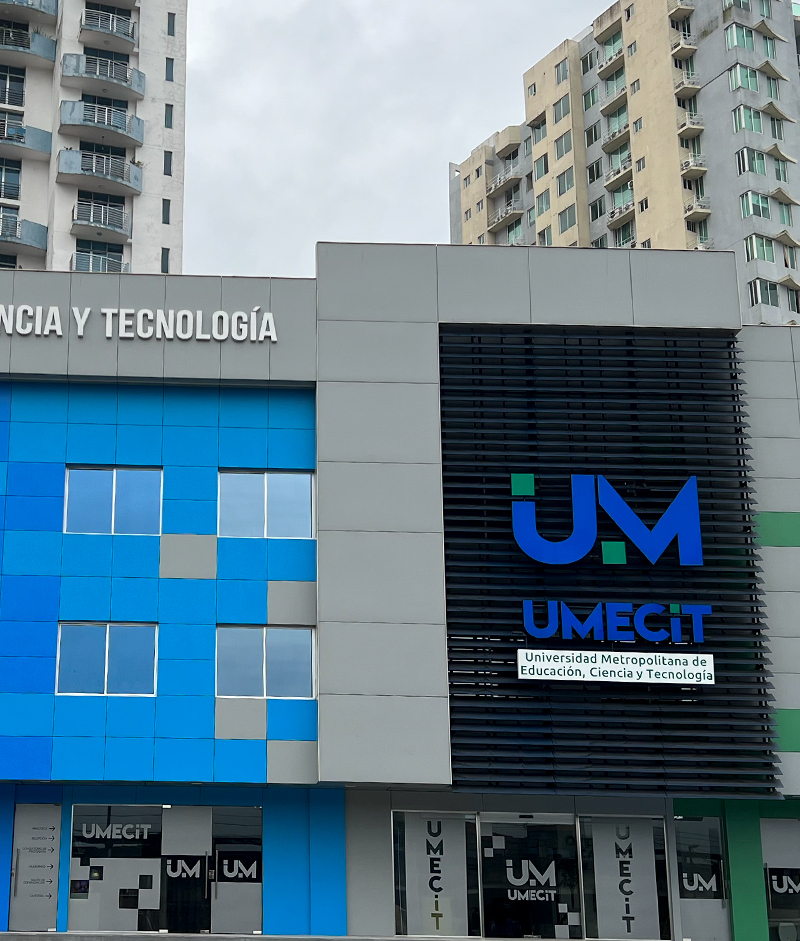

"HELLO"
the research network "HELLO" is a space dedicated to the promotion and development of research in the fields of knowledge related to psychology, physiotherapy, medical records, health education and occupational health. We are committed to the advancement of these disciplines and to the training of highly trained professionals in each of the aforementioned areas.
Network "HELLO" welcomes all those interested in participating in this space dedicated to the promotion and development of research in various areas of knowledge related to psychology, physiotherapy, medical records, health education, nursing, occupational health and any other from the health field.
The Metropolitan University of Educational Sciences, Technology and Innovation (UMECIT) is proud to present this network, whose main objective is to promote the generation of knowledge, the exchange of ideas and the development of research projects in the field of health Sciences.
Our research policies expressly state the following: "Strengthen investigative praxis and its impact through the insertion of researchers in national and international networks." In this sense, the central commitment of the network is based on the realization of this insertion and promoting actions from research for the advancement and strengthening of these disciplines, as well as the training of highly trained professionals in each of the aforementioned areas. .
The “SALUS” Network seeks to be a space for collaboration and learning, where interested teachers, researchers and students can broaden their academic horizons and delve into topics relevant to today's society, from the field of health.
Network "HELLO" provides the opportunity to participate in cutting-edge research projects, access specialized resources and tools, and establish connections with leading professionals in your subject area. In addition, encourage the dissemination of the results obtained through participation in scientific events and the publication of articles in specialized or educational magazines.
Academic excellence, research ethics and collaborative work are valued as fundamental pillars of the network. It seeks to form a community committed to quality and scientific rigor, where each member can develop their research skills and contribute to the advancement of health sciences.
All interested students are invited to join the Research Network, "HELLO", to share their passion for research for the benefit of society and the development of their professional career.
RESEARCH THAT CAN BE CARRIED OUT FROM THE NETWORK
The Research Network "HELLO" offers a wide field of research projects in various areas of health sciences. Some of the possible research projects that have been designed to be developed according to the mission, vision, institutional pillars and the progress that has been made over the years in the research process of health schools are:
1. Study of psychological interventions in stress management:
Research that evaluates the effectiveness of different therapeutic approaches in reducing stress, such as cognitive-behavioral therapies, relaxation and mindfulness techniques, therapeutic techniques related to new technologies, in specific populations such as children and young people in vulnerable situations, university students or high stress workers.
2.Evaluation of chronic disease prevention programs
Research that analyzes the effectiveness of educational programs and the promotion of healthy lifestyles in the prevention of chronic diseases, such as diabetes, cardiovascular diseases or respiratory diseases, in different population groups.
3.Study of physical rehabilitation techniques in postoperative patients
Research that examines the efficacy of different physiotherapy interventions in the rehabilitation of patients after orthopedic, cardiac or other surgeries, with the aim of improving their functionality and quality of life.
4.Analysis of medical records and their impact on clinical decision making
Research that evaluates the quality and usefulness of electronic medical records in clinical decision-making, analyzing aspects such as the accuracy of documentation, access to information and the influence on patient safety.
5.Evaluation of health education programs in specific communities
Research that examines the effectiveness of health education programs in specific populations, such as adolescents, older adults, or low-income communities, with the aim of promoting healthy practices and preventing disease.
These are the general proposals of the Research Network "HELLO", however, it is important to clarify that the The network is open to the development of research projects on a wide range of topics related to psychology, physiotherapy, medical records, health education, nursing, occupational health and any other of the health sciences. The research projects will be developed by multidisciplinary teams and will encourage collaboration among the members of the network.
CONTRIBUTIONS TO TEACHING, RESEARCH AND EXTENSION OF THE “SALUS” NETWORK:

The Research Network "HELLO" of the UMECIT makes important contributions to the teaching, research and extension processes of the institution. Below are brief explanations of the benefits that this network provides in each of these areas.
Network "HELLO" it enriches the teaching and learning processes by offering teachers and students an active and participatory research environment. Research projects allow students to apply the theoretical knowledge acquired in the classroom to real situations, thus strengthening their academic and practical training. In addition, participation in the network provides mentoring opportunities by experienced teachers and researchers, fostering the professional growth of students and the theoretical-conceptual advancement of specific disciplines of knowledge.
Network "HELLO" promotes the generation of new knowledge in the areas of psychology, physiotherapy, medical records, health education and occupational health. Through collaborative research projects, members of the network can investigate and address current issues, thus contributing to scientific progress in their respective disciplines. The results obtained in the research projects are essential to improve the quality of research at UMECIT and enrich the scientific community in general.
Network "HELLO" promotes the dissemination and transfer of knowledge generated to society. Through participation in academic events, scientific publications, outreach activities, and community interventions, the network seeks to share research findings with the academic community and the general public. In addition, collaboration with external institutions and communities is encouraged, which makes it possible to apply the knowledge and skills developed in the network to address health problems and promote healthy lifestyles in society.
In short, the Research Network "HELLO" of the UMECIT contributes significantly to the teaching, research and extension processes. It provides a favorable environment for the academic and professional training of students, promotes the generation of new knowledge in various areas of health, and promotes the transfer of this knowledge to society to improve the quality of life and promote health in the community. .
REGISTRATION LINK TO THE “SALUS” NETWORK
Interested in being part of the SALUS network, enter the following link and provide the corresponding information:

REDANIP
UMECIT, aware of the importance of maintaining inter-institutional cooperation activities carried out that include the incorporation of teachers and/or researchers in research networks, establishes in its research policies, strengthen research praxis and its impact through the insertion of researchers in these research development spaces.
The National Academic Network for Research in Prisons (REDANIP) arises as an initiative of UMECIT and is strengthened and crystallized within the framework of national agreements signed with the OTEIMA Universities and the American University, to jointly carry out academic, teaching, research and responsibility activities. around the issue of prisons.
The terms of participation in the framework of the network imply
1. Promote exchange and academic mobility between students, teachers, researchers and managers in activities related to teaching, research and social projection developed in the prison environment
2. Facilitate the identification and development of individual or joint research projects within the framework of the network
3. Provide access to experts, researchers and academics from other institutional and regional spheres for their participation in debates on the subject matter of this network
4. Generate academic spaces for the dissemination of research projects
5. Promote reflection on prison public policy
6. Build a space for proposals and dialogue with public and private bodies that have decision-making power over educational and prison investigative policies in the country
CONTRIBUTIONS TO TEACHING, RESEARCH AND EXTENSION OF THE "REDANIP" NETWORK

The Research Network "REDANIP" of the UMECIT makes important contributions to the teaching, research and extension processes of the institution, in the areas of knowledge associated with the research that is developed. Below are the benefits that this network provides in each of these areas:
Network "REDANIP" contributes from the training and training processes, transfer and research results, to the teaching and learning processes by offering teachers and students inputs that can enrich the classroom experience and assess the importance of addressing this type of issue, from a diverse professional perspective. Research projects allow students to apply the theoretical knowledge acquired in the classroom to real situations, thus strengthening their academic and practical training. In addition, participation in the network provides mentoring opportunities by experienced teachers and researchers, fostering the professional growth of students and the theoretical-conceptual advancement of specific disciplines of knowledge.
Network "REDANIP" It promotes the generation of new knowledge in the areas of education, law, psychology, social work and all those potentially associated with prison contexts. Through collaborative research projects, members of the network can investigate and address current problems, thus contributing to scientific progress in their respective disciplines, in an area of special attention, with attention to vulnerable groups. The results obtained in the research projects are essential to improve the quality of research at UMECIT and enrich the scientific community in general. There is advice from the UNESCO Chair on prisons, which guarantees the look, advice and contributions of experts at the international level.
Network "REDANIP" promotes the dissemination and transfer of knowledge generated to society. Through participation in academic events and interactions with the community and the environment. The network seeks to share research findings through institutional dissemination media, scientific journals and other national or international spaces. In addition, collaboration with external institutions and communities is encouraged, which makes it possible to apply the knowledge and skills developed in the network to address problems in prison settings.
SCIENTIFIC PRODUCTION OF REDANIP (2017-2022)

ADHESION TO THE REDANIP NETWORK
All universities or researchers who meet the requirements and are interested in contributing to the objectives of the network may belong to the network.
Each interested party submits to the coordinator of the network, their willingness to adhere, which will be assessed and approved for the corresponding issuance of a letter of adhesion.
REGISTRATION LINK TO THE “REDANIP” NETWORK:
Interested in being part of the REDANIP network, enter the following link and provide the corresponding information:








